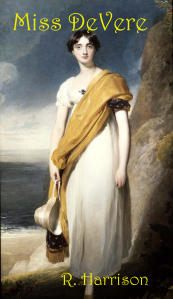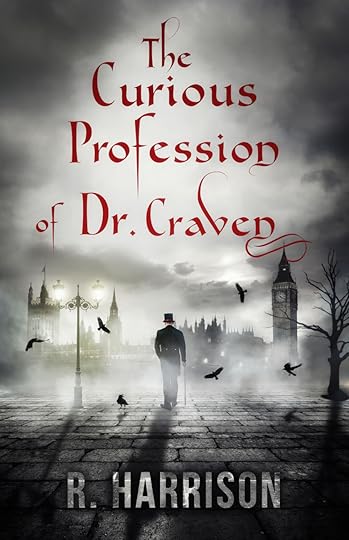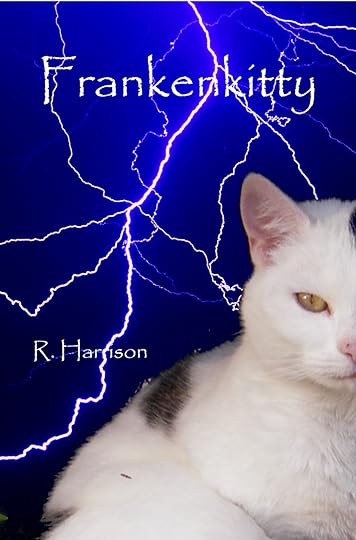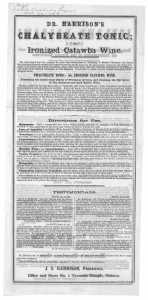R. Harrison's Blog, page 21
June 3, 2016
A Day in My Life #lifebookswriting
Let’s see, a typical day. That’s actually hard because there are seldom typical days.
So here goes:
5-7 am. Wake up. Actually my wife wakes up first, usually. I let her have the first shower and either read or check email. If I’m teaching undergraduates, there’s always something from a student. Usually along the lines of “I’ve just started this homework at 11:45” They’ve had it for two weeks, “and can you extend the deadline past 12?” I never check my work email during the evening when there’s a class. It only encourages them. Mind you, if it’s something substantial, I answer it.
She’s done, out walking the dog and training our cats. So it’s time for my morning ablutions. Before they went to uni, this was when I’d wake our boys. Wake them for the first time, that is. Now I just shower.
Breakfast: For someone who occasionally posts dashed good recipes, I keep it simple. A quesadilla; tortilla on griddle, hot sauce on tortilla, cheese on hot sauce, fold, and brown both sides. Mexican soul food. Did I mention I’m as anglo as they come? By now the tea is cool, but that’s fine.
Then I write and do author stuff. I’m usually sitting at the end of the table across from my wife, and she’s doing much the same. Atlanta traffic is ferocious. If you can, and we often can, it’s best to wait it out. If I leave at 8, I’ll get in at 10. If I leave at 9 I’ll get in at 10. If I leave at 9:45, I’ll get in at 10. The car seats aren’t that comfortable.
Then it’s research, right now really difficult optimization problems – large systems of simultaneous transcendental equations (If you get that you’re good), or machine learning. We’re looking at faster ways to do Boltzmann machines. That Stat. mech. I took as an undergraduate in the dark ages still comes in useful.
This is often the truly fun part of being a professor. Working with the PhD students and teaching them how to formulate – then answer problems. Undergraduates are the next most fun, but they’re a little clueless. That can get frustrating. The rest, administration trolls and arbitrary power struggles over trivial things; well that can take a hike.
Usually, lunch at my wife’s office. She’s also a professor. Then after more work, the drive home.
Atlanta traffic comes into it’s full power in the afternoon. Between 3 and 6, it’s a parking lot. So we go the back way. Still an hour on the road, but at least you’re moving. We follow the line of march from Sherman’s army on the way home. There’s nothing wrong with the South that a visit from William Tecumseh Sherman couldn’t fix.
Then it’s a couple hours more writing, usually a mixture of work and fiction. Always with a pot of tea. Unless the trolls have been active; then it’s a beer. Since we’ve had children, I’ve usually done the cooking (my wife nursed the kids when they were infants), and she’s done the cleanup (I played with and changed them). That division of labor has survived school, scouts and university. Before then we used to swap. Dinner, walk the dog, and in the immortal words of Pepys “off to bed.”


Patience Taught by Nature #fridayread #fridaypoem
Elizabeth Barrett Browning, 1806 – 1861
“O Dreary life!” we cry, “O dreary life!”
And still the generations of the birds
Sing through our sighing, and the flocks and herds
Serenely live while we are keeping strife
With Heaven’s true purpose in us, as a knife
Against which we may struggle. Ocean girds
Unslackened the dry land: savannah-swards
Unweary sweep: hills watch, unworn; and rife
Meek leaves drop yearly from the forest-trees,
To show, above, the unwasted stars that pass
In their old glory. O thou God of old!
Grant me some smaller grace than comes to these;—
But so much patience, as a blade of grass
Grows by contented through the heat and cold.
 Windy Tybee Island Beach.
Windy Tybee Island Beach.

June 2, 2016
Nonsense Alphabet
Edward Lear, 1812 – 1888
A
A was an ant
Who seldom stood still,
And who made a nice house
In the side of a hill.
a
Nice little ant!
*
B
B was a book
With a binding of blue,
And pictures and stories
For me and for you.
b
Nice little book!
*
C
C was a cat
Who ran after a rat;
But his courage did fail
When she seized on his tail.
c
Crafty old cat!
*
D
D was a duck
With spots on his back,
Who lived in the water,
And always said “Quack!”
d
Dear little duck!
*
E
E was an elephant,
Stately and wise:
He had tusks and a trunk,
And two queer little eyes.
e
Oh, what funny small eyes!
*
F
F was a fish
Who was caught in a net;
But he got out again,
And is quite alive yet.
f
Lively young fish!
*
G
G was a goat
Who was spotted with brown:
When he did not lie still
He walked up and down.
g
Good little goat!
*
H
H was a hat
Which was all on one side;
Its crown was too high,
And its brim was too wide.
h
Oh, what a hat!
*
I
I was some ice
So white and so nice,
But which nobody tasted;
And so it was wasted.
i
All that good ice!
*
J
J was a jackdaw
Who hopped up and down
In the principal street
Of a neighboring town.
j
All through the town!
*
K
K was a kite
Which flew out of sight,
Above houses so high,
Quite into the sky.
k
Fly away, kite!
*
L
L was a light
Which burned all the night,
And lighted the gloom
Of a very dark room.
l
Useful nice light!
*
M
M was a mill
Which stood on a hill,
And turned round and round
With a loud hummy sound.
m
Useful old mill!
*
N
N was a net
Which was thrown in the sea
To catch fish for dinner
For you and for me.
n
Nice little net!
*
O
O was an orange
So yellow and round:
When it fell off the tree,
It fell down to the ground.
o
Down to the ground!
*
P
P was a pig,
Who was not very big;
But his tail was too curly,
And that made him surly.
p
Cross little pig!
*
Q
Q was a quail
With a very short tail;
And he fed upon corn
In the evening and morn.
q
Quaint little quail!
*
R
R was a rabbit,
Who had a bad habit
Of eating the flowers
In gardens and bowers.
r
Naughty fat rabbit!
*
S
S was the sugar-tongs,
sippity-see,
To take up the sugar
To put in our tea.
s
sippity-see!
*
T
T was a tortoise,
All yellow and black:
He walked slowly away,
And he never came back.
t
Torty never came back!
*
U
U was an urn
All polished and bright,
And full of hot water
At noon and at night.
u
Useful old urn!
*
V
V was a villa
Which stood on a hill,
By the side of a river,
And close to a mill.
v
Nice little villa!
*
W
W was a whale
With a very long tail,
Whose movements were frantic
Across the Atlantic.
w
Monstrous old whale!
*
X
X was King Xerxes,
Who, more than all Turks, is
Renowned for his fashion
Of fury and passion.
x
Angry old Xerxes!
*
Y
Y was a yew,
Which flourished and grew
By a quiet abode
Near the side of a road.
y
Dark little yew!
*
Z
Z was some zinc,
So shiny and bright,
Which caused you to wink
In the sun’s merry light.
z
Beautiful zinc!


May 31, 2016
The Fish
Marianne Moore, 1887 – 1972
wade
through black jade.
Of the crow-blue mussel-shells, one keeps
adjusting the ash-heaps;
opening and shutting itself like
an
injured fan.
The barnacles which encrust the side
of the wave, cannot hide
there for the submerged shafts of the
sun,
split like spun
glass, move themselves with spotlight swiftness
into the crevices—
in and out, illuminating
the
turquoise sea
of bodies. The water drives a wedge
of iron through the iron edge
of the cliff; whereupon the stars,
pink
rice-grains, ink-
bespattered jelly fish, crabs like green
lilies, and submarine
toadstools, slide each on the other.
All
external
marks of abuse are present on this
defiant edifice—
all the physical features of
ac-
cident—lack
of cornice, dynamite grooves, burns, and
hatchet strokes, these things stand
out on it; the chasm-side is
dead.
Repeated
evidence has proved that it can live
on what can not revive
its youth. The sea grows old in it.


May 28, 2016
The Art of Deception 16 #wewriwar #amwriting
or Pride and Extreme Prejudice

Welcome to Weekend Writing Warriors. This week continues a spy story set in late Georgian England, the year before Trafalgar. Last week Alice was on an errand of mercy. This week Alice and Roderick finally meet, or at least are in the same city at the same time. Alice is on her practical, learning the ropes as it were, when he spots her.
Lord Fitzpatrick nodded to his companion, “That young chit.” He pointed to a servant on the low rise above the harbour, “she’s counting the ships.”
“No, she’s just watching the workmen down in basin; probably has a special friend or possibly even a husband at sea; you’re seeing things.”
“I tell you; she’s counting; didn’t you see her while our ship was docked in the Avonmouth yesterday?”
“Roddy, old chap, you need to relax; I know it was dashed hard, spying on those bloody Brother Jonathans, but we’re home, England, Bristol; you’ve been on the jump since I met you on the packet boat off Cork. It’s someone else’s problem, if it’s a problem at all.”
“There is something to what you say, Edward; suspicion is an occupational hazard in my line of work; however, I don’t think I’m jumping at shadows.”
“This is England, we don’t do things like that; even the blasted French spies are polite. It’s not as if poisons are available in every druggist like rhubarb,” Edward watched his friend; he seemed to relax, “If you’ll stay out of trouble so that I have the chance to do it, I’ll send the express to Lord Grey that we’ve landed.”
Please see the other talented writers in Weekend Writing Warriors.
The Gillray cartoon I’ve used as a featured image looks innocent enough. Innocent until you realize that it’s a satire of Lord Sandwich (Son of the Earl of two pieces of bread with something between them fame) and his proclivities. He’s propositioning a barrow-girl. Most commentaries state that it’s about public morality, but I wouldn’t be surprised to find that there’s a deeper meaning with the barrow-girl symbolic of England. Sandwich was up to his neck in jobbery.
I’ve released a sweet regency romance, Miss DeVere  This is a fun read, and unlike “The curious profession of dr craven
This is a fun read, and unlike “The curious profession of dr craven  ” seems to not carry a curse. However, Dr Craven is on sale this week. (Of course, because of the mess BT leaves, it will probably be free soon.)
” seems to not carry a curse. However, Dr Craven is on sale this week. (Of course, because of the mess BT leaves, it will probably be free soon.)
Frankenkitty is available.
 What happens when teenagers get to play with Dr Frankenstien’s lab notebooks, a few odd chemicals and a great big whopping coil? Mayhem, and possibly an invitation to the Transylvanian Neuroscience Summer School.
What happens when teenagers get to play with Dr Frankenstien’s lab notebooks, a few odd chemicals and a great big whopping coil? Mayhem, and possibly an invitation to the Transylvanian Neuroscience Summer School.
Booktrope shuts it’s doors May 31. This opens a whole slew of questions, including whether to return to an earlier pen-name (R. Harrison being dead common.) It also means that come June 1, the current version of “The curious profession of dr Craven.” will be unavailable. I will get the rights back without trouble. (Although there are issues about ‘creative teams’ that still need to be settled.)


May 27, 2016
Character Inspiration. #LifeBooksWriting
I tend to work backwards. Plot first, character second. 
Set up a situation, starting with something that seems normal, and then keep throwing muck at the characters until something develops.  Even if it’s only a patent medicine.
Even if it’s only a patent medicine.
Except that’s not quite true. I develop something of the background of my characters in order to define the situation. In “The curious profession of Dr Craven,” I knew from the beginning that Dr Craven was a widower, isolated from society by his own guilt over his late wife. Cecelia, started as more of a cipher, a blank slate. Still, she was desperate enough to flee her rather rascally father by marrying anyone she could. Fortunately she meets Dr Craven before too long.
In Frankenkitty Jennifer starts almost as the essential ‘valley girl’ but develops to a clever and mature young woman. The adults in that young adult book are mostly childish, and always clueless. Of course her cat, Snuffles, gets a shot at nine more lives. Though at a somewhat larger scale than he had in his first nine. Gertrude starts as her elderly German neighbor, a seemingly sweet old woman with a soft spot for Jenny. She returns halfway through, her youth restored by the mysterious “pink solution,” as a manipulative man-killer (figuratively).


To the Moon [fragment] #fridayreads
Percy Bysshe Shelley, 1792 – 1822
Art thou pale for weariness
Of climbing Heaven, and gazing on the earth,
Wandering companionless
Among the stars that have a different birth,—
And ever changing, like a joyless eye
That finds no object worth its constancy?
Experimenting with a new lens, for wildlife and things like that.


May 24, 2016
Passers-by
Carl Sandburg, 1878 – 1967
Passers-by,
Out of your many faces
Flash memories to me
Now at the day end
Away from the sidewalks
Where your shoe soles traveled
And your voices rose and blent
To form the city’s afternoon roar
Hindering an old silence.
Passers-by,
I remember lean ones among you,
Throats in the clutch of a hope,
Lips written over with strivings,
Mouths that kiss only for love,
Records of great wishes slept with,
Held long
And prayed and toiled for:
Yes,
Written on
Your mouths
And your throats


May 22, 2016
Dutch Oven Pot Roast. #recipe #goodfood
This is a very simple way to make a traditional dinner. Although I did it at home, it’s fully suitable for camping and within the skill levels of young scouts.
Pot roast is a gristly, fatty, and usually inexpensive cut of meat. It needs to be slow cooked to become tender. Then it’s excellent. The grease at the bottom of the oven in the featured image has almost all cooked off the meat. The meat has lost about 1/2 its volume and is extremely tender.
Cut up and saute two large onions.
It is important to at least sweat the onions to remove some of the more volatile compounds. I used a small amount of olive oil, but anything will do. Were I camping, I’d do this in the bottom of the dutch oven itself and remove once done. (It will sit nicely on a butane/propane camp stove.)
Add about 1 cup beef stock/bullion. I used a teaspoon of condensed stock and added a cup of water. Reduce the volume by about 1/2.
While the volume is being reduced do two things.
start the coals
wash and cut in half or quarter 1-2 pounds of potatoes.
Put a nice (about 1mm thick) layer of oil on the bottom of the dutch oven. Then place the potatoes in it. Put the meat on top of the potatoes. This will raise it out of the drippings and help it to cook cleanly. Place the cooked onions and remaining broth on top of the meat. Add one cup of water to the oven, cover and place on the coals. A dutch oven used over charcoal tends to dry the contents so it is important to start with extra water inside.
1 and 1/2 to 2 hours later, the meal should be done. I rotated the oven and counter-rotated the lid once or twice during this time.


May 21, 2016
The Art of Deception 15 #wewriwar #amwriting
or Pride and Extreme Prejudice

Welcome to Weekend Writing Warriors. This week continues a spy story set in late Georgian England, the year before Trafalgar. One more posting about Alice before she and Roderick meet. Last week we found Alice in training at Mrs Hudson’s academy in Chipping Sodbury, and in trouble. This week she’s on an errand of mercy. There’s a veiled reference to a Jane Austen book in here. Can you find it?
Later that afternoon, Lucy fell ill, and Alice was detailed with a trip to the druggist. Unfortunately, his response wasn’t helpful.
“If it were a sleeping potion, or a poison, say some hemlock or arsenic … I could help you, but rhubarb; what’s that for?”
“Settling the stomach; I mean everyone knows that.”
“Do tell; I’m sorry, are you sure you don’t want hemlock or maybe morphia?”
“It’s for a friend; A good friend.”
“Oh well then I have the miraculous cup; guaranteed to purge every time … Jalap or Calomel maybe?”
“She just has an upset stomach, rhubarb.”
“Sorry I can’t help you; Did you try Allinger’s? Just down the street from us, or maybe Smith’s in Yate?”
Please see the other talented writers in Weekend Writing Warriors.
One reviewer for Dr Craven took me to task for the incompetence of medicine in 1805. (Couldn’t they tell someone was dead? In short, no. At least not until the body started to smell.) Jalap, calomel and “the miraculous cup” (tartar emetic or spirits of antimony in wine), are at the standard of care at the time. I think the idea was that if you survived the purging, whatever it was that ailed you felt good. They did have morphia or opium in various forms. Powdered rhubarb root, imported from China, was used to settle stomachs. We don’t use it today because it was at best a placebo. Interestingly the first controlled clinical trial had been done forty years before (willow bark or salicylates) so there were the very beginnings of modern medicine. Only radical doctors used this discovery. Still twelve years after this, Princess Charlotte would die in childbirth because the doctor refused to use tongs and straighten out her breech birth in what was otherwise an uncomplicated delivery. Even in Victorian times infants died from “teething,” or more likely the overdose of opium, various mysterious patent medicines, or even lancing the gums that were standard practice at the time.
I skipped the chapter where Lord Grey deposits Alice at the school.
I’ve released a sweet regency romance, Miss DeVere  This is a fun read, and unlike “The curious profession of dr craven
This is a fun read, and unlike “The curious profession of dr craven  ” seems to not carry a curse. However, Dr Craven is on sale this week.
” seems to not carry a curse. However, Dr Craven is on sale this week.
Frankenkitty is available.
 What happens when teenagers get to play with Dr Frankenstien’s lab notebooks, a few odd chemicals and a great big whopping coil? Mayhem, and possibly an invitation to the Transylvanian Neuroscience Summer School.
What happens when teenagers get to play with Dr Frankenstien’s lab notebooks, a few odd chemicals and a great big whopping coil? Mayhem, and possibly an invitation to the Transylvanian Neuroscience Summer School.
Booktrope shuts it’s doors May 31. This opens a whole slew of questions, including whether to return to an earlier pen-name (R. Harrison being dead common.) It also means that come June 1, the current version of “The curious profession of dr Craven.” will be unavailable. I will get the rights back without trouble. (Although there are issues about ‘creative teams’ that still need to be settled.)





